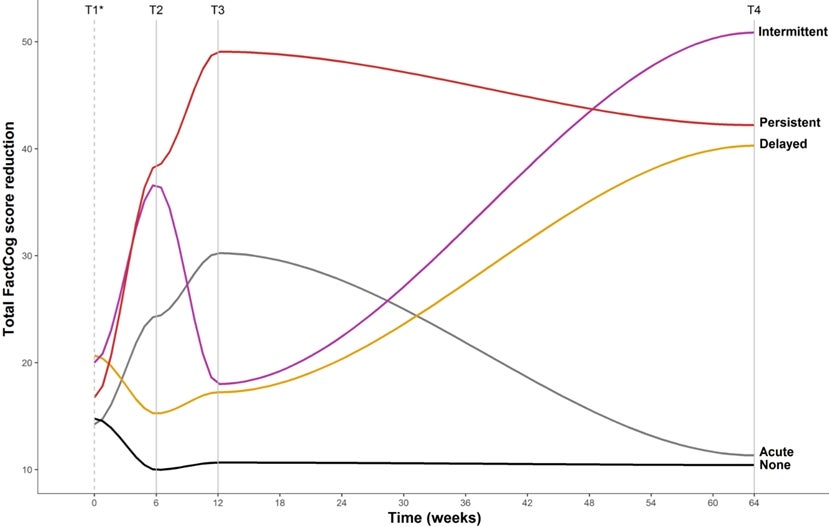Changes in cognitive ability of breast cancer survivors
April 09, 20189 Apr 2018. NUS pharmacists have established different trajectory profiles of self-perceived cognitive function among breast cancer patients who are experiencing post-treatment cognitive impairment.
Early-stage breast cancer is the most commonly diagnosed cancer among women worldwide. While medical treatment conveys excellent survival benefits to early-stage breast cancer patients, many of them acquire long-term side effects on their cognitive abilities in the form of memory loss or short attention spans. These side effects can dramatically affect their quality of life during survivorship. Unfortunately, the identification of the physical signs and symptoms associated with the changes in their cognitive abilities remain poorly understood and this lack of knowledge is a major barrier for survivorship that needs assessment and clinical management of the condition.
A research team led by Prof Alexandre CHAN from the Department of Pharmacy, NUS has established five distinct trajectory profiles that capture the varied patterns of cognitive decline experienced by breast cancer patients after their chemotherapy treatment. The onset and duration of cognitive impairment is noticeably varied, indicating that there may be a variation in the mechanistic causes. The team found that patients who experienced a drastic drop in self-perceived cognitive function during chemotherapy tend to have a considerably higher risk of reporting cognitive impairment a year into survivorship.
The findings are obtained by studying the self-perceived cognitive function of 131 breast cancer patients using validated questionnaires before, during and after their chemotherapy treatment. The team found that cognitive decline is reported in close to 50% of breast cancer patients at some point during their treatment and survivorship. Slightly over 30% of them reported clinically significant cognitive decline even after one year of completing active chemotherapy. Such declines in cognitive abilities are not expected for healthy individuals.
Prof Chan said, “This study draws attention to the challenges faced by breast cancer survivors after completion of active treatment, as they begin to resume their societal roles. It is potentially relevant to regularly assess patient-reported outcome measures, such as self-perceived cognitive function, as changes in these measures can signal future cognitive decline during survivorship. This will pave the way towards targeted pre-emptive action for those at risk.”

Figure shows superimposed trajectories of 131 patients categorised according to cognitive decline trajectory groups over a 15 month period. The y-axis provides the reduction of FACT-Cog (Functional assessment of cancer therapy-cognitive) score at each time point, which is obtained by subtracting the grouped average score from the maximum possible score (i.e. 148). FACT-Cog is a measure used to assess the health-related quality of life in cancer patients.
Reference
Ng TRD; Dorajoo SR; Chueng YT; Chan A*, “Distinct and Heterogeneous Trajectories of Self-perceived Cognitive Impairment among Asian Breast Cancer Survivors” PSYCHO-ONCOLOGY DOI: 10.1002/pon.4635 Published: 2018.


